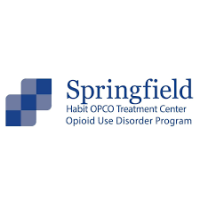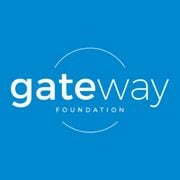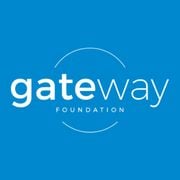IIAR - Illinois Institute for Addiction Recovery
Drug Rehab Center in Springfield, Illinois
The Illinois Institute for Addiction Recovery (IIAR) provides comprehensive addiction treatment services and is accredited by multiple organizations, with options to access care through private health insurance.
About This Springfield, IL Facility
Trillium Place - Springfield, located in Springfield, Illinois, is a premier addiction treatment center offering comprehensive care for individuals struggling with chemical dependency, gambling, food, sex, internet, video game, shopping/spending addictions, as well as dual diagnosis and chronic pain with addiction. With a focus on quality, hospital-based treatment, Trillium Place - Springfield aims to support both individuals and their families.
• Holistic approach: Trillium Place - Springfield offers a range of complementary therapies, such as yoga, biofeedback, trigger point injections, aqua therapy, drum circle therapy, sand therapy, acupuncture, and massage therapy, to address the physical, mental, and emotional aspects of addiction.
• Specialized programs: The center provides targeted treatment for various addictions, ensuring that each individual receives care tailored to their specific needs.
• Family involvement: Recognizing the impact of addiction on loved ones, Trillium Place - Springfield encourages family participation in the treatment process.
Accredited by JCAHO, SAMHSA, and holding a State License, Trillium Place - Springfield is committed to delivering evidence-based care. Their affiliation with the Illinois Institute for Addiction Recovery further reinforces their dedication to providing effective treatment options.
Trillium Place - Springfield treats a wide range of addictions, including chemical dependency, gambling, food, sex, internet, video game, shopping/spending, dual diagnosis, and chronic pain with addiction. They offer a comprehensive continuum of care, including detoxification, inpatient and outpatient programs, intensive outpatient programs, partial-hospitalization, residential care, and aftercare support.
Genders
Ages
Modality
Additional
Accreditations
State License
SAMHSA

JCAHO
Conditions and Issues Treated
Addiction to prescription opioid painkillers like oxycodone and hydrocodone, and illicit opioids such as heroin, leads to potentially life-threatening withdrawal symptoms when discontinued. Opioid addiction treatment typically involves an inpatient stay at facilities like IIAR - Illinois Institute for Addiction Recovery to make sure they get through withdrawal safely. Treatment also includes comprehensive mental health counseling.
Mental illness includes conditions such as anxiety, depression, schizophrenia, bipolar disorder. It can also happen that mental illness causes drug addiction and vice versa. IIAR - Illinois Institute for Addiction Recovery in Illinois knows it is vital to diagnose dual diagnosis or co-occurring disorder.
Levels of Care Offered
This center offers a variety of custom treatment tailored to individual recovery. Currently available are Aftercare Support, Detox, Drug Rehab, Dual-Diagnosis, Inpatient, Intensive Outpatient, Outpatient, Partial-Hospitalization, Residential, with additional therapies available as listed below.
One of the first things an addict should do when entering treatment is to abstain from using illicit drugs completely. Depending on the length of time that the person has been using, the addict may have to go through alcohol or drug withdrawal. Fortunately, detox doesn’t have to be done alone, and withdrawal symptoms can be managed medically in an inpatient or outpatient setting. While detox may be uncomfortable, it is not life-threatening. Detoxification allows the addict to rid the body of all traces of drugs or alcohol and gives the addict a clean slate for their recovery.
Inpatient programs are intensive regimes that require individuals suffering from serious addictions to admit themselves into a controlled environment. Inpatient programs in Illinois generally span over 28 days to six months. The first step in an inpatient program is medically assisted detox. Doctors and addiction specialists at IIAR - Illinois Institute for Addiction Recovery monitor the individual’s vital signs as the drugs leave their system. Some inpatient rehab programs also provide counseling for family members to provide encouragement and emotional support. In inpatient programs, patients have access to 24-hour medical supervision.
Daily trips to the hospital that provides the treatment include intensive outpatient services (IOP). IOP in Illinois is appropriate for patients in residential recovery facilities that have been diagnosed with addiction. Patients return to their everyday lives gradually, increasing the likeliness of success in treatment.
To assist with alcohol or opioid abuse, or a co-occurring condition, IIAR - Illinois Institute for Addiction Recovery offers an outpatient treatment program. For their rehabilitation and other services, the Illinois patient will go to the treatment center, yet return home every night. After most of the program is completed, the level of mandatory participation reduces.
To protect those dealing with acute symptoms of addiction, a partial hospitalization program is ideal in the treatment process. This ensures that the person is cared for in a hospital-like environment in Springfield, IL during the battle against drug addiction effects. Most PHPs need therapy for about six hours, at least three days a week.
Residential treatment programs are those that offer housing and meals in addition to substance abuse treatment. Rehab facilities that offer residential treatment allow patients to focus solely on recovery, in an environment totally separate from their lives. Some rehab centers specialize in short-term residential treatment (a few days to a week or two), while others solely provide treatment on a long-term basis (several weeks to months). Some offer both, and tailor treatment to the patient’s individual requirements.
Treatment is just a first step in sustaining sobriety. After rehabilitation, counseling for aftercare helps the person adapt to a life without drugs. A sober living facility in Springfield, job therapy, or educational assistance may be included in this service, managed by IIAR - Illinois Institute for Addiction Recovery. This is when a preventive strategy for relapse starts to take shape.
IIAR - Illinois Institute for Addiction Recovery‘s Therapies & Programs
In addiction recovery at IIAR - Illinois Institute for Addiction Recovery, therapy plays a significant role. This helps patients get to the root of their addiction and discover how the problems that contributed to their use can be handled better. Therapy can be performed in a group and one on one settings. The patient interacts with the therapist in a one-on-one atmosphere during individual therapy. This encourages them to reflect on the underlying addiction problems and develop ways to avoid potential future abuse.
Addiction and alcoholism affect the entire family. For this reason, family therapy is vital to a person’s recovery from addiction. In contrast to couples counseling, family therapy at IIAR - Illinois Institute for Addiction Recovery may include siblings, children, parents, and other significant people in the recovering person’s life. Family support is one of the most important pillars of recovery.
Many people turn to drugs and alcohol as a way of processing trauma that has affected them in the past. Trauma can include abuse, neglect, the loss of a loved one and other unpleasant incidents. Trauma therapy at IIAR - Illinois Institute for Addiction Recovery helps patients process trauma. It gives them the tools to deal with it in a healthier manner.
Dialectical behavioral therapy (DBT) is a type of Cognitive Behavioral Therapy that focuses on eliminating specific negative thoughts such as suicidal thoughts that can potentially lead to an individual inflicting self-harm. It is useful in the treatment of patients exhibiting uncontrollable emotions, intense mood swings, and borderline personality disorders.
The term “Dialectic” means the integration of opposites. In the substance abuse context, DBT refers to accepting the patient’s addiction and working to change their thoughts and behavior. It improves life skills such as controlling the intense emotions without reacting impulsively, resolving the interpersonal conflicts effectively, and promoting awareness about self and others.
Cognitive Behavioral Therapy (CBT) examines the relationship between a patient’s thoughts, feelings and behaviors. IIAR - Illinois Institute for Addiction Recovery aims to establish a healthy response to thoughts and feelings as an alternative to turning to drugs and alcohol. It also promotes healthy communication between addicts and those around them. It is and effective therapy for people suffering with all types of addictions.
Rational Emotive Behavior Therapy (REBT) is a type of cognitive therapy. It is based on the principle that irrational thoughts are responsible for the emotional and behavioral changes in addiction. So, the therapy starts with identifying the underlying irrational thoughts. These thoughts are then challenged and opposed logically and then replaced with positive thoughts. It also helps to change unwanted behavior with techniques such as meditation.
By imparting positive thoughts and emotions, Rational Emotive Behavior Therapy (REBT) makes the individual self-reliant with a capacity to handle the emotional and behavioral issues in future by themselves without professional help. This self-dependence benefits the patients and prevent relapses.
Patient Experience
Experiential Therapy at IIAR - Illinois Institute for Addiction Recovery
Experential therapy is a unique type of therapy that deals with the subconscious mind. This treatment available at IIAR - Illinois Institute for Addiction Recovery in Springfield, IL encourages individuals to work out their issues with their inner self through synchronous experiences.
This non-traditional treatment method makes use of the physique and encourages people to take part in various physical and emotional activities, movements, and practices. Some of the most common examples of experiential therapy are equine therapy, music therapy, adventure therapy, and role playing. Through these various methods, an individual is believed to heal from trauma, negative emotions, and hurtful memories faster. Moreover, experiential therapy is known to have enduring results which can be beneficial to sufferers.
Fitness Therapy
Fitness therapy is a part of the holistic approach and comprehensive care provided in substance abuse treatment. Fitness therapy in substance abuse treatment includes activities like swimming or jogging that promote movement and improve the general level of fitness of the individual. It does not involve the vigorous exercise regimes used in fitness programs.
Fitness therapy targets attaining the benefits of exercise to the brain like improved attention, cognitive functions, and memory power. Besides, the endorphins released during exercise reduces the anxiety and stress levels and improves the calmness. Fitness therapy complements the various other therapies used in a residential program and outpatient therapies.
Payment Options Accepted
For specific insurance or payment methods please contact us.
Is your insurance accepted?
Ask an expert, call (888) 674-0062
Illinois Institute for Addiction Recovery Associated Centers
Discover treatment facilities under the same provider.
- IIAR - Illinois Institute for Addiction Recovery - North Knoxville Avenue in Peoria, IL
- IIAR - Illinois Institute for Addiction Recovery in Normal, IL
- IIAR - Illinois Institute for Addiction Recovery in Harvey, IL
- IIAR - Illinois Institute for Addiction Recovery - Franklin Avenue in Normal, IL
Learn More About Illinois Institute for Addiction Recovery Centers
Additional Details
Specifics, location, and helpful extra information.
Springfield, Illinois 62704 Phone Number(217) 726-6611 Meta DetailsUpdated April 15, 2024
Staff Verified
Patient Reviews
There are no reviews yet. Be the first one to write one.
Springfield, Illinois Addiction Information
In 2016, more than 2,350 Illinoisans died from drug overdoses. More than 5,500 deaths annually occur in Illinois due to the abuse of alcohol and other drugs. 7.17% of Illinois residents reported using illicit drugs in the past month (2018). Substance abuse costs the state approximately $3.5 billion every year.
In 2019, the Springfield Police Department reported that heroin was the most common drug involved in overdoses. The most commonly abused drugs in Springfield, IL, are heroin, cocaine, methamphetamine, and prescription drugs. There are many different types of drug treatment available in Springfield, IL, and the best way to find the right one for you is to speak with a professional.
Treatment in Nearby Cities
- Belleville, IL (87.8 mi.)
- Dekalb, IL (157.3 mi.)
- Orland Park, IL (160.8 mi.)
- Beardstown, IL (42.4 mi.)
- West Chicago, IL (165.8 mi.)
Centers near IIAR - Illinois Institute for Addiction Recovery
The facility name, logo and brand are the property and registered trademarks of IIAR - Illinois Institute for Addiction Recovery, and are being used for identification and informational purposes only. Use of these names, logos and brands shall not imply endorsement. RehabNow.org is not affiliated with or sponsored by IIAR - Illinois Institute for Addiction Recovery.









